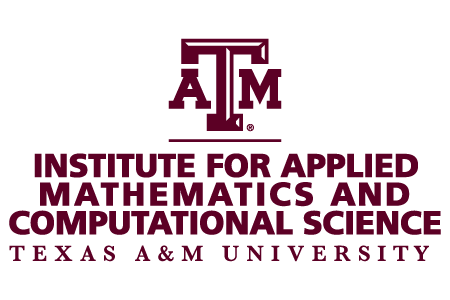December 2-3, 2009 Unifying the Mechanics of Continua, Cracks Particles Stewart Silling (Sandia National Labs) Abstract The standard theory of continuum mechanics, which is based on partial differential equations, is largely incompatible with some important phenomena in solids, such as the emergence and growth of cracks. Attempts to make a direct link between the standard continuum theory and molecular dynamics are equally problematic,...
Workshops on Computational and Mathematical Challenges in Material Science and Engineering: Multi-Functional Materials: Coupled Field Theories, Composites and Materials Failure
September 30 – October 1, 2009 On Rethinking Plasticity Theory for Crystalline Solids: A Study in Multiscale Modeling J. L. Bassani (University of Pennsylvania) Abstract The structure of classical plasticity theory, whether applied to single crystals or to the effective behavior of polycrystals, is generally assumed to be associative in the sense that the flow potential is taken to be the yield function. As Hill noted in 1950, to a large...
Workshop: Modeling Biological Materials: Soft Tissue and Biologically Inspired Materials
January 27 – 28, 2010 Role of Smooth Muscle Cells in Residual Stress Formation in Vascular Tissues Elena DiMartino (University of Calgary) Abstract When observed on a sufficiently long time scale, i.e., long enough for cells to sense and respond to chemical and mechanical cues, biological soft tissues are “open systems” that exchange mass and energy with the external environment. This characteristic makes their mathematical...
Workshops on Computational and Mathematical Challenges in Material Science and Engineering: Data Assimilation in the Geosciences
An Overview of the State-of-the-Art in Data Assimilation Istvan Szunyogh (TAMU) Abstract Data assimilation is the process of obtaining an estimate of the state of a complex physical system, such as the terrestrial or a planetary atmosphere or the oceans, based on observations and a dynamical model of the system. The dynamical model represents a collection of our knowledge of the physical, chemical, and biological processes that determine the...
5th Annual Spring Symposium Agenda
Day 1 May 12, 2013 8:10 – 8:25 – Ramond J. Carroll – Welcome Morning Session 1A – Room 5209 – Building 5 Sea and Near-Shore Ecosystems Organizers: Jay Walton, Dan Roelke and Chris Voostra 8:30 – 9:10 – Burt H. Jones Measuring, Modeling and Analyzing Variablity in the Red Sea Marine System 9:15 – 9:55 – Stein Kaartvedt Deep Red Sea Brine Pools affect the Adjacent Pelagic...
Speaker Seminar Series
Check the list below for dates for Guest Speakers Speaker Seminar on April 6, 2009 4:00 pm Speaker Seminar on April 8, 2009 4:00 pm Speaker Seminar on October 12, 2009 10:00 am Speaker Seminar on October 26, 2009 10:00 am Speaker Seminar on March 1, 2010 2:30 pm Speaker Seminar on April 23, 2010 2:30 pm Speaker Se

